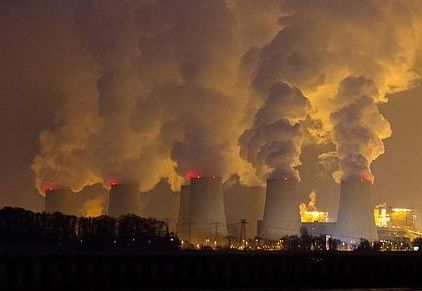British banks HSBC and Standard Chartered have agreed to finance half a dozen new coal power plants in Vietnam and Indonesia, which will create 44 million tonnes of carbon dioxide each year.
The revelation, in a report by global non-governmental organisation (NGO) Global Witness, means that the CO2 emissions each year from these plants will be more than the total output of 67% of the world’s countries.
It comes just weeks after HSBC trumpeted a new energy policy which the bank promised would help its customers “make the transition to a low-carbon economy in a responsible and sustainable way.
In a statement in April, the bank’s group head of strategy and global head of sustainable finance, said: “We recognise the need to reduce emissions rapidly to achieve the target set in the 2015 Paris Agreement to limit global temperature rises to well below 2 degrees Celsius and our responsibility to support the communities in which we operate.”
But crucially, HSBC excluded Bangladesh, Indonesia and Vietnam from the new policy that prevents the financing of new coal power plants.
Standard Chartered, meanwhile, published a “position statement” which recognises “the role of the financial sector in achieving the 2015 Paris Agreement goals of holding the increase in the global average temperature to well below 2°C above pre-industrial levels.”
Their rivals, meanwhile are taking a harder line. There are now 19 banks which have stopped direct financing to new coal mines projects worldwide, according to BankTrack. These are Natixis, ING, Commerzbank, KBC, Credit Agicole, SocGen, Rabobank, BNP Paribas, Deutsche Bank, US Bancorp, ABN Amro and Royal Bank of Scotland.
On Monday, Global Witness’s climate change manager, Stuart McWilliam, said the decision by the two banks could have “dire consequences” and accused them of hypocrisy.
He explained: “Both banks should urgently join the growing group of major banks worldwide who are ending all support for coal power. These plans will be terrible for the climate and will contribute to thousands more deaths from toxic air.
“These loans create an increasing risk for investors. For these banks to take this kind of action whilst publicly supporting the commitments made in the Paris Climate Agreement is rank hypocrisy.”
Mark van Baal, a champion of environmental investing and the founder of investor movement Follow This, told ESG Clarity that “these incidents show that it’s easy to say you support the Paris Climate Agreement, and apparently difficult to walk the talk.”
He explained: “New fossil fuel projects are on collision course with the Paris Climate Agreement. We should help developing countries to leapfrog our fossil-fuelled economic development by financing renewable energy projects.
“More and more investors realise that they can not make long term returns in an above-2°C-world (in which escalating climate change will stall the world economy), and therefore do not finance these kind of projects.”
In a written response provided to ESG Clarity, an HSBC spokesperson said: “HSBC does not support new coal fired power plants with 3 exceptions for countries that have no reasonable alternative to coal.
“They must also adhere to the highest performance standards and we require independent analysis confirming the country has no reasonable alternative to coal. This is not a commercial decision; we are trying to balance two different sustainable development goals of getting power to the people and limiting the environmental impact.”
Standard Chartered did not respond to a request for comment at the time of publication.








